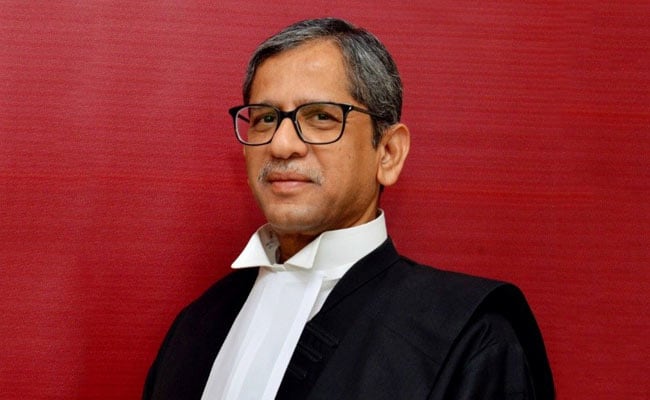
Judges appointing judges a myth, says CJI Ramana

The Chief Justice of India, N V Ramana, on Sunday defended the judiciary against charges that judges were appointing judges through the collegium.
Delivering the fifth Lavu Venkateswarlu Endowment Lecture at Siddhartha Law College in Vijayawada, Ramana said it has become “fashionable to reiterate phrases like ‘judges are themselves appointing judges’.”
“I consider this to be one of the widely propagated myths. The fact is that the judiciary is merely one of the many players involved in the process. Many authorities are involved, including the Union law ministry, state governments, governors, the high court collegia, Intelligence Bureau and, lastly, the topmost executive, who all are designated to examine the suitability of a candidate. I am sad to note that the well-informed also propagate the aforesaid notion as these narratives suit certain sections,” he said.
Stating that filling vacancies is one of the persistent challenges before the judiciary, the CJI appreciated the government’s efforts in appointing several judges in recent times.
However, urging the Centre to strictly adhere to the timelines laid down in the Malik Mazhar Case, Ramana said, “Some recommendations made by the high courts are yet to be sent to the Supreme Court by the Union law ministry.”
The CJI also defended the judiciary against criticism of judicial overreach through the power of review. He said that “such generalisations are misguided” and that “if the judiciary does not have the power of judicial review, the functioning of democracy in this country would be unthinkable”.
“A popular majority is not a defence for arbitrary actions taken by a government,” he said. “The concept of separation of powers cannot be utilised to restrict the scope of judicial review.”
Ramana, who has been critical about the lack of impact assessment or basic scrutiny of constitutionality before legislations are passed, said: “The least that is expected of the legislature while drafting laws is that they abide by settled Constitutional principles. While making laws, they must also think of providing effective remedies for issues which may arise out of the law. But these principles are being seemingly ignored.”


